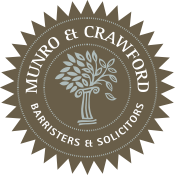Settling an estate, typically called the “administration of an estate”, can be a complex process, with numerous legal and logistical hurdles to overcome before assets can be properly distributed.
However, every situation is unique. Estate timelines will vary depending on the specifics of each person’s case. This guide will give you an idea of what to expect, but it’s important to note the timelines given are estimates and to work with an estate lawyer to get specifics on your case.
Initial Steps in Settling an Estate
Settling an estate involves managing and distributing a deceased person’s assets. An executor is responsible for this process. During the first phase, executor duties include but are not limited to:
-
- Gathering legal documents such as the death certificate, and property deeds.
- Notifying beneficiaries including family members, friends, or charities to inform them of their inheritance.
- Will validation, which requires a court to review and validate the will to facilitate the probate process. This can take a while, so be sure to have it readily available.
The estate timeline can vary for each person, but the first steps often take one to three months.
The Probate Process: Applying for a Grant of Probate
Probate is required if a deceased person holds assets, and is typically needed if the deceased exclusively owned assets, substantial sums exceeding the threshold set by individual financial institutions, or for solely owned real estate (among other reasons). The probate process is typically the most time-consuming aspect of settling an estate. It can take between three and six months, but the estate timeline can be even longer in some cases.
At a high level, the probate process includes:
- Searching for a Wills Notice
- Preparation of the probate application
- Notifying beneficiaries
- Submitting the probate application and paying fees
Administration of the estate can truly being once the grant of probate/administration is received. For more information, consider contacting us, or reading our more detailed breakdown of the probate process.
Inventory and Valuation of Assets
Once probate is underway, it’s time to assess and appraise the value of the deceased person’s assets. A typical estate timeline for this process is several months, depending on the size and complexity of the estate.
A key part of estate administration, the executor values assets including:
- Real estate – Properties including homes, rentals, and land
- Financial accounts – Bank accounts, and investment portfolios
- Personal property – Personal belongings including art, antiques, and jewellery
- Vehicles – Cars, motorcycles, and boats
- Intellectual property – Any copyrights, trademarks or patents
Legal documents help verify asset ownership and determine its value to ensure asset distribution goes smoothly thereafter.
Paying Debts & Taxes
Clearing debts and taxes is a vital part of settling an estate. They need to be settled before distributing the remaining assets.
Creditors must be identified, notified, and given a set period to submit claims to clear debts. As part of the estate administration process, the executor is also tasked with filing tax returns and paying outstanding taxes.
Debts and taxes extend the estate timeline: expect to wait between two and six months for this step to be completed.
Distributing Assets to Beneficiaries
When everything else is sorted, it’s time for the final stage of settling an estate: asset distribution. This is one of the key executor duties. The executor will transfer ownership of assets including property and money to beneficiaries. They do this by following the instructions in the will, or by law if a will does not exist.
Again, the estate timeline varies for this phase, but it usually takes from one to three months.
Asset distribution can be delayed if there are disputes among beneficiaries, legal challenges, and issues related to the complexity of the estate.
Settling an Estate & Need a Personalized Estate Timeline?
Settling an estate brings closure and relief, but navigating each stage can be challenging.
The timelines in this article are just a rough guide, but navigating the entire estate process can easily take a year within BC. Contact Munro & Crawford today or call 604-266-7174 if you need assistance and require a more personalized estate timeline. We specialize in probate and estate administration, wills and trusts, and business law.






